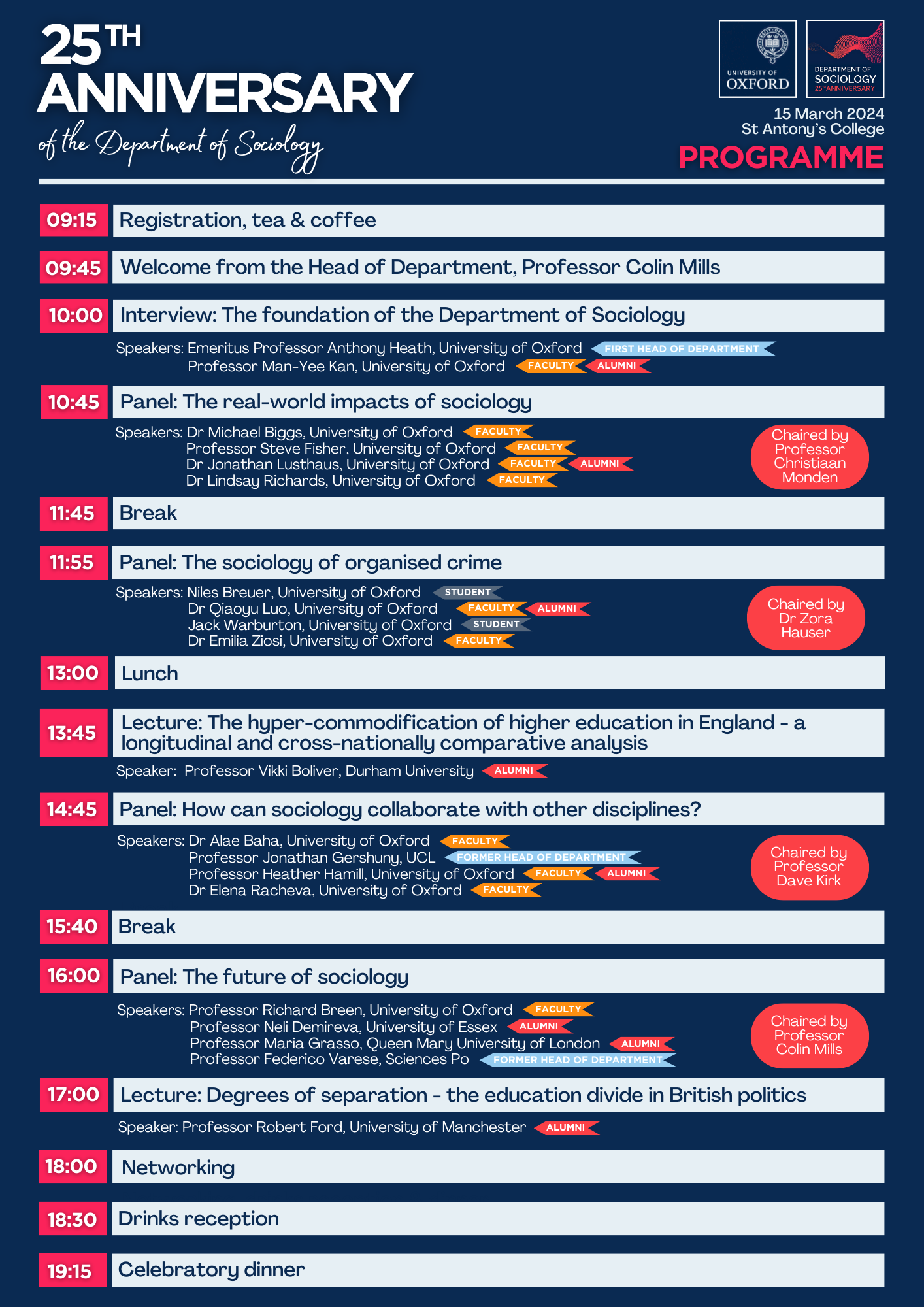Faculty
Alae Baha is a Postdoctoral Researcher at the University of Oxford, working in the field of economic theory. His research is centred around dynamic games and contract theory, and he is particularly interested in studying dynamic monitoring environments and how information is elicited in games with asymmetric information. His recent work focuses on organised crime and studies the mechanisms allowing for cooperation among criminals as well as the determinants of certain forms of organisational structures in the underworld.
Anniversary Programme
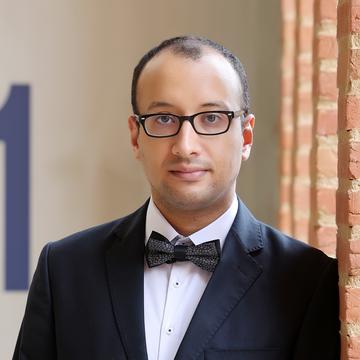

Student
Niles Breuer is a PhD student in the Department of Sociology at the University of Oxford. His research interests include social network analysis and organised crime. His current research focuses on investigating the network structure of mafia groups using open-source and publicly-available data sources.

Former Head of Department
Jonathan Gershuny is a Professor of Economic Sociology at UCL, and an Emeritus Statutory Professor at the University of Oxford. He was previously a Head of the Department of Sociology, and currently directs the ESRC Centre for Time Use Research, which uses time use data to investigate issues of social life, paid work patterns, work-life balance, family, gender, and socio-economic structure. An Academician of the UK Academy of Social Sciences, Jonathan was elected to the British Academy in 2002 and chaired the Academy’s Sociology, Demography and Social Statistics Section from 2006-2009. He won the Silver Medal of the UK Market Research Society in 1987, gave the first Millennium Lecture at 10 Downing Street in 1999, and was appointed as a Commander of the British Empire in the Queen’s New Year Honours 2017.
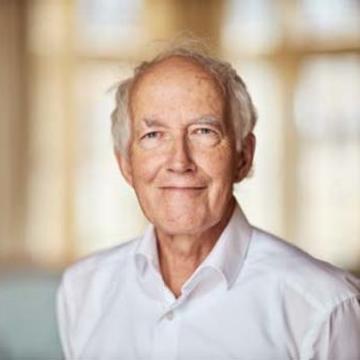
Former Head of Department
Anthony Heath is an Emeritus Professor of Sociology at the University of Oxford, having been a member of the University since 1970. Over the subsequent 50 years, his research has ranged widely over many areas, from rational choice theory to electoral behaviour, and he directed the British Election Surveys of 1983, 1987, 1992 and 1997 and the 2010 Ethnic Minority British Election Survey. Currently, Anthony leads a project for the Social Mobility Commission, designing a new measurement framework in order to monitor trends in social mobility and to evaluate the effectiveness of government policy. He is also a member of an Office For National Statistics task force aimed at improving the collection of equalities data across government and to ensure that ‘everyone counts, and is counted, and no one is forgotten’.
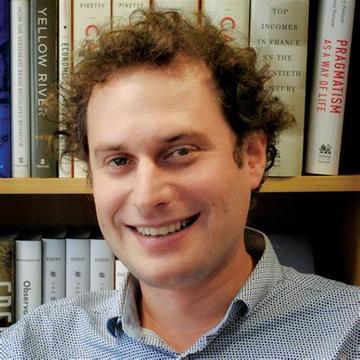
Faculty
Jonathan Lusthaus is an Associate Professor in Global Sociology at the University of Oxford and Director of The Human Cybercriminal Project. His research focuses on the "human" side of profit-driven cybercrime: who cybercriminals are and how they are organised. Jonathan’s debut book, “Industry of Anonymity: Inside the Business of Cybercrime”, accounts the lives of cybercriminals and the vast international industry they have created, using research obtained over a seven-year period from Eastern Europe to West Africa.
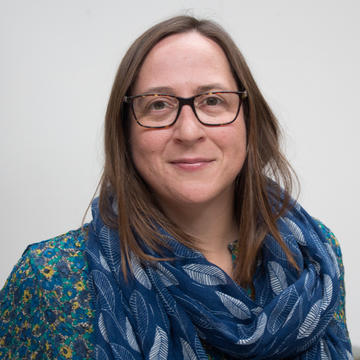
Faculty
Lindsay Richards is a Lecturer at the University of Oxford and a quantitative sociologist with an interest in the consequences of social inequalities within the UK, and in comparative perspective. Her research activities focus on socioeconomic status and various outcomes including health and wellbeing (a range of outcome measures from self-rated health and life satisfaction to frailty and allostatic load), attitudes (especially attitudes to immigration), and migration intentions. Lindsay is interested in the mechanisms by which socioeconomic status exerts its influence on life, including the role of resources in early life, psychosocial aspects of status, social connections, and identities. Her research outputs include publications in academic journals that span sociology, politics, and epidemiology, as well as several reports for wider audiences.

Faculty
Michael Biggs is Associate Professor of Sociology at the University of Oxford and a Fellow of St Cross College. He studied at Victoria University of Wellington and Harvard University. His research on social movements addresses two themes: the volatility of protest waves and self-inflicted suffering as protest. This research has been published in American Journal of Sociology, American Sociological Review, Social Forces, British Journal of Sociology, European Sociological Review, Politics and Society, and Mobilization. Recently he has become interested in the transgender movement and its consequences. An article on the way that queer theory shaped prison policy was published in Journal of Controversial Ideas.
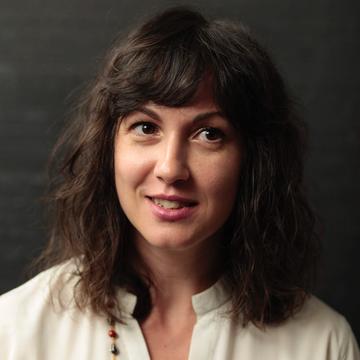
Alumni
Neli Demireva is a Professor of Sociology at the University of Essex, researching vulnerable local communities, migration, inter-ethnic ties, social cohesion, ethnic penalties and multiculturalism. Supported by a Leverhulme Research Fellowship, she is currently working on several topics exploring local area effects in relation to migrants, voluntary organisations in the UK, and social trust. Her book, “Pioneering Social Research Life Stories of a Generation”, co-authored with Paul Thompson and Ken Plummer, was published in 2021 and documents how modern social research in the UK was shaped.

Alumni
Maria Grasso is a Professor of Political Science and Political Sociology at Queen Mary University of London, working in the areas of social change, political generations, social movements, youth politics, and the shift from traditional means of political participation (parties, electoral politics and left-right conflict) to more diffuse and irregular forms of involvement (demonstrations, consumer boycotts and issue campaigns). She is currently researching the impact of political humour on political attitudes and behaviours in the UK. Maria has published three books, including “Generations, Political Participation and Social Change in Western Europe”, and with Marco Giugni, “Living with Hard Times: Europeans in the Great Recession” and “Street Citizens: Protest Politics and Social Movement Activism in the Age of Globalization”.
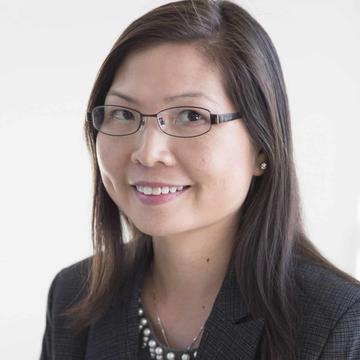
Faculty & Alumni
Man-Yee Kan is a Professor of Sociology at the University of Oxford, conducting research on time use, gender inequalities, family and the labour market, and welfare policies. Her project GenTime aims to investigate trends in gender inequality in time use in East Asian and Western societies. More recently, Man-Yee has investigated the migration of Hong Kong people to the UK, estimating the size, migration planning, and socio-demographic profiles of Hong Kong migrants. She has also researched on the impacts of the Covid-19 pandemic on migration decisions.
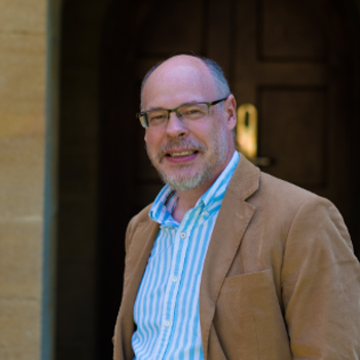
Head of Department
Colin Mills is an Associate Professor of Sociology at the University of Oxford and a Fellow of Nuffield College. His research interests comprise social inequality, workplace employment relations, social survey methodology, and quantitative social research.
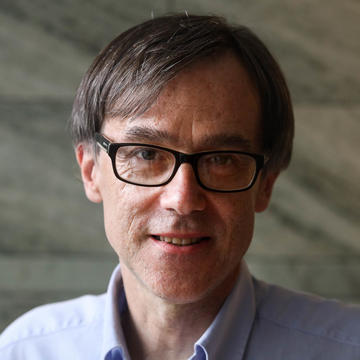
Former Head of Department
Federico Varese is Professeur des Universités en Sociologie at Sciences Po, Paris, and a Senior Research Fellow at Nuffield College, Oxford. He is also the Director of the Extra-Legal Governance Institute at the Department of Sociology, Oxford. He was Professor of Criminology at Oxford University from 2006 to 2023, and Head of the Department of Sociology from 2021 to 2023. Currently, he is the Principal Investigator of the ERC Advanced Grant CRIMGOV project. Federico is the author of four award-winning books, which have been translated into more than ten languages. He also contributes regularly to newspapers and is interviewed in the media often. His main research focus is the study of organised crime, criminal governance, ethnography, and advanced social network analysis. He has served as Editor of the journal Global Crime, and is a member of the editorial board of The British Journal of Criminology.
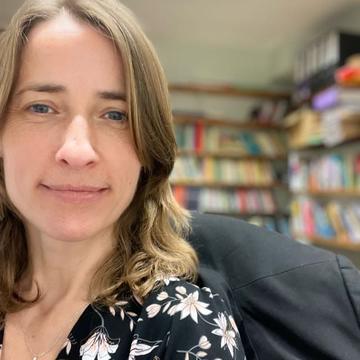
Alumni
Vikki Boliver is a Professor of Sociology at Durham University, investigating the social inequalities of access to prestigious universities. She is a leading expert on the use of contextual data on the socioeconomic circumstances of prospective university students to inform more equitable admissions decisions. At Durham, Vikki directs the MA in Social Research Methods and also co-convenes the University’s First Generation Scholars Network, which celebrates the achievements of people who are the first in their family to go to university. She is currently a member of the editorial board for the British Journal of Sociology of Education.
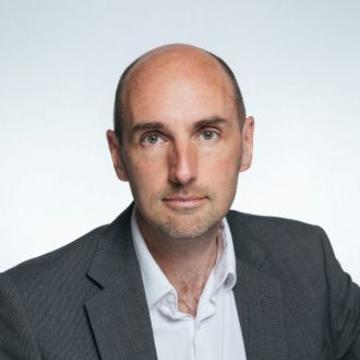
Faculty
Steve Fisher is a Professor of Political Sociology at the University of Oxford, working in the area of public opinion and how people vote in elections, in Britain and across the world. The main themes of his research have been attitudes to climate change, ethnic minority political attitudes and behaviour, analysis of election outcomes, political geography, election forecasting, tactical voting and quantitative research methods. Steve has worked with the United Nations Development Programme (UNDP) on a global survey of climate change attitudes (The Peoples’ Climate Vote), provided election predictions for the BBC, and commentary on elections and public opinion for the media more broadly.

Faculty & Alumni
Heather Hamill is a Professor of Sociology at the University of Oxford; her research centres on the various ways in which problems related to establishing trust and reputation are solved, issues that are particularly pertinent in the low-trust environments of high crime neighbourhoods and criminal organisations. Heather has researched these issues in a number of different settings including: informal justice and policing in Northern Ireland; how taxi drivers establish the trustworthiness of their customers, and how illegal political and criminal organisations recruit members. Her current research focuses on the problems of trust created by the proliferation of sub-standard and falsified medicines in sub-Saharan Africa.
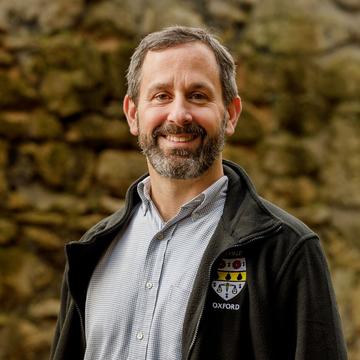
Faculty
Dave Kirk is a Professor of Sociology at the University of Oxford. His research is primarily organised around three inter-related themes: the causes and consequences of police misconduct, solutions to criminal recidivism, and the causes and consequences of gun violence. His book, “Home Free” (Oxford University Press 2020), traces the effect of residential displacement among the formerly incarcerated in the wake of Hurricane Katrina. Another project, funded by the National Collaborative on Gun Violence Research, is designed to examine the correlates and consequences of gun violence over the life course over the past 25 years, a period of dramatic social change in the US. Dave's research has appeared in American Journal of Sociology, American Sociological Review, Criminology, and The Proceedings of the National Academy of Sciences.

Faculty
Christiaan Monden is a Professor of Sociology and Demography at the University of Oxford, whose research centres around family, health & mortality, and social inequality. He is interested in how societies differ in who lives with whom, who gets how much of the good and bad stuff in life, and how (un)fortune in life is related to who your family are. Christiaan’s FAMSIZEMATTERS project studies questions about the link between family size and (the reproduction of) social inequalities.

Student
Jack Warburton is completing a DPhil in Sociology supervised by Professor Federico Varese and Dr Jonathan Lusthaus. His research focuses on the British drugs trade and looks at the application of criminal governance to this context.

Faculty
Richard Breen is a Professor of Sociology at the University of Oxford, working in the areas of inequality, social mobility, and quantitative methods. He has edited two cross-national, comparative studies of social mobility: “Social Mobility in Europe” (2004) and (with Walter Müller) “Education and Intergenerational Social Mobility in Europe and the United States” (2020). Much of Richard’s recent work has focused on the relationship between demography and inequality, particularly the role of assortative mating and fertility differences. He is also a Fellow of the British Academy, a Member of the Royal Irish Academy, and a Member of Academia Europaea.

Alumni
Robert Ford is a Professor of Political Science at the University of Manchester, working in the areas of public opinion, electoral choice and party politics. His first book (co-authored with Matthew Goodwin) - "Revolt on the Right" - examined the rise of the UK Independence Party. It was named Political Book of the Year in 2015. His second book, “Brexitland”, written with Maria Sobolewska, explored the political drivers of the 2016 EU referendum. Robert has also edited two volumes of short essays looking at voter behaviour and public opinion - "Sex, Lies and the Ballot Box" and "More Sex, Lies and the Ballot Box". He is currently working on a number of projects, including investigating how the interaction between racial prejudices and anti-racist norms influences the politics of immigration and the anti-immigrant far-right in Europe.

Faculty & Alumni
Zora Hauser is a Postdoctoral Fellow at the Department of Sociology. Her work investigates criminal governance and illicit economies in a variety of settings, with a focus on dynamics of trust and violence. Currently, she contributes to CRIMGOV, a research project aimed at understanding how criminal groups produce, trade, and govern. Zora is in the process of turning her DPhil dissertation on the international expansion of the Calabrian mafia into a book (forthcoming with Oxford University Press). Her work has been featured on CNN, in Der Spiegel, the FAZ, and the Swiss Broadcasting Group (SRF), among others. Based on her research, Zora has given evidence in front of the first parliamentary inquiry into Italian mafias in German history.

Faculty & Alumni
Qiaoyu is a Postdoctoral Researcher working on the Forensic Epidemiology and Impact of Substandard and Falsified Antimicrobials on Public Health (FORESFA) project and the Social Network Analysis project at the Department of Sociology. He completed his DPhil in Sociology at the University of Oxford in 2024. His thesis investigated the extra-legal governance of the cybercrime industry in China. Qiaoyu’s research interests are organised crime and cybercrime, as well as how conventional organised crime groups adapt to the information age.
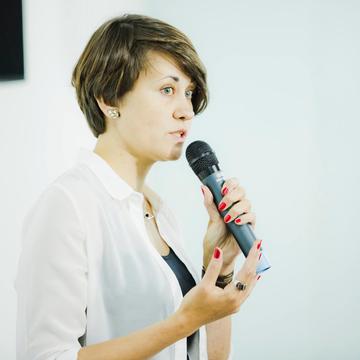
Faculty
Elena Racheva is a Postdoctoral Research Fellow at the University of Oxford. She is a member of the CRIMGOV project, where she explores criminal governance in Soviet and post-Soviet Russia. Elena is also working on research focused on the legacies of wars in Afghanistan and Chechnya for contemporary Russian society, as well as the militarisation and patriotic mobilisation of Russia. She finished her DPhil project in Medieval and Modern Languages at the University of Oxford in 2022. Previously, Elena worked as a special correspondent for independent Russian newspaper Novaya Gazeta, covering different political and social issues in former Soviet countries, and published a book of oral history of Soviet Gulag, published in four languages.

Faculty
Emilia Ziosi is a Researcher at the University of Oxford, working on the CRIMGOV Project at the Department of Sociology, and on the Contested Space, Illicit Flows, and Order in the Contemporary World Project at the Blavatnik School of Government. Emilia completed her PhD on illicit economies and criminal governance in contemporary Honduras at the University of Milan in 2023. Her research interests include the relations between organised crime, the state and civil society, and the interconnections between legal and illegal governance.
Keynote Lectures
The hyper-commodification of higher education in England: a longitudinal and cross-nationally comparative analysis
Professor Vikki Boliver
Higher education in England has become increasingly commodified in recent decades, with reductions in public spending on universities and students, replaced with tuition fees and loans payable by higher education participants cast as private consumers. A study drawing on 2007 data for 19 countries including England showed that cross-national differences in the extent of higher education commodification mapped strongly on to the welfare regimes typology developed by Esping-Anderson, with liberal regimes including England the most commodified.
I build on this to explore change between 2007-2020 in the extent of higher education commodification across the same 19 countries. I find a substantively large increase in the commodification of higher education in just one of these countries: the liberal regime of England. The magnitude of this shift is such that I suggest that the English higher education system now stands apart from all other liberal regimes by virtue of its hyper-commodification.
Degrees of Separation: The education divide in British politics
Professor Robert Ford
British politics since the 2016 Brexit referendum has been characterised by the emergence of a new divide, between graduates and school leavers. Education now has a stronger relationship with vote choice than any other demographic or economic variables other than age.
This presentation will examine the demographic and political drivers of the emerging education divide, and will explore the implications of rising education divides for the major political parties in recent elections and in the election to come later this year.

